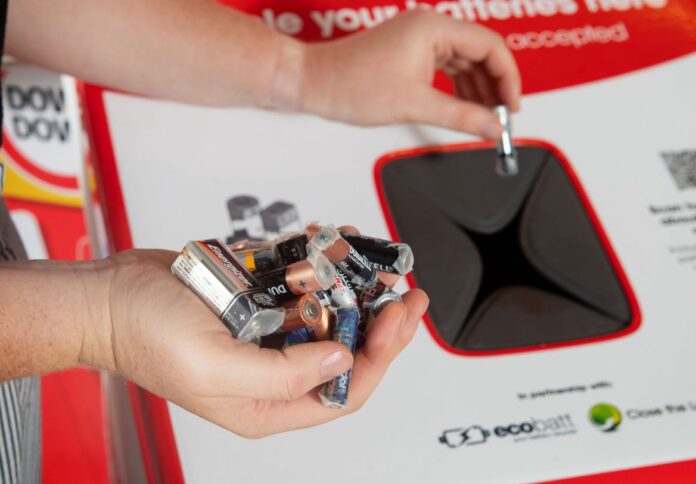
Australian supermarket giant Coles has joined the country’s official government-backed battery recycling scheme B-cycle, adding nearly 850 battery recycling drop-off points across the country.
Coles has partnered with materials recovery companies Close the Loop and Ecobatt to oversee the bins, battery collection, and recycling.
The supermarket company’s enlistment in the B-cycle scheme means broader access to drop-off points for people to bring their used loose handheld batteries, diverting the waste from landfills.
Brooke Donnelly, general manager of sustainability at Coles, said the B-cycle initiative helps address one of the fastest-growing waste problems in Australia and brings the nation forward in its circular economy transition.
“It’s estimated that Aussies have more than 150 million loose batteries in their homes but only 12 per cent are currently being recycled. By adding B-cycle battery collection bins out the front of our stores we’re providing a way for our customers to recycle their batteries that is safe and convenient,” Donnelly said.
Coles’ partnership with B-cycle marks a major milestone for the expansion of the recycling scheme with more than 5,000 B-cycle drop-off points now available across the country and present in every major supermarket.
“With Coles now an accredited participant of the B-cycle Scheme, we expect to see a boost in public awareness around battery recycling and improvements to Australia’s capacity to further develop a circular battery supply chain. To effect lasting and sustainable change, we need all parts of the battery retail and manufacturing industries to become B-cycle accredited participants,” said B-cycle CEO Libby Chaplin.
“Research conducted in 2021, before the launch of the B-cycle Scheme, found that 63 per cent of Australians said they were incorrectly disposing of their batteries in their general waste and recycling bins. Through the support of leading retailers, importers and manufacturers, the Scheme has been able to rapidly scale, seeing the collection rate nearly doubling from 7% to 12% since the launch in 2022. With the addition of Coles to the Scheme and the 846 new drop-off points across Australia, we urge more people to not bin their batteries, but take them to a drop-off point instead,” Chaplin said.
Kesh Nair, spokesperson for Close the Loop, commended Coles’ decision to roll out battery bins at the majority of its stores.
“The bins use innovative technology that can detect fire risks before they occur and notify us when the batteries are ready for collection. The batteries are then taken for sorting and recycled into materials and products like new batteries. This is a far better alternative than going to landfill, where there is additional risk of leakage of hazardous materials into soil, water and drainage systems,” Kesh said.
B-cycle bins accept any brand of AA, AAA, C, D, and rectangular 6 and 9-volt batteries, as well as cell batteries.
Customers are required to tape the ends of their batteries with sticky tape to help prevent fires.



















